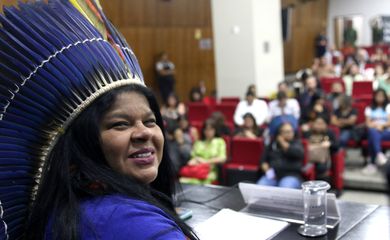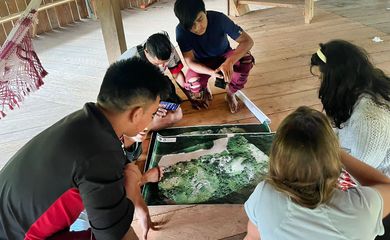Top court votes 9–2 in favor of indigenous land rights

By nine votes to two, the Brazilian Supreme Court has ruled that the time frame for demarcating indigenous lands is unconstitutional. The decision was reached Thursday (Sep. 21), after the 11th session on the case.

The move invalidates the proposal defended by landowners. Before the result, the court’s rulings could establish that indigenous people only had the right to land that was in their possession on October 5, 1988—the date of the promulgation of the current Constitution—or to territories that were in legal dispute at the time.
The last vote of the session was cast by the chief Justice Rosa Weber. The Constitution, she argued, guarantees that the lands traditionally occupied by indigenous peoples are permanently inhabited and form part of their cultural heritage, and there is no need to limit them to a time frame.
“I dismiss the time frame thesis, following the entirety of [rapporteur] Justice Fachin’s vote, reaffirming that the jurisdiction of the Inter-American Court of Human Rights points to traditional possession as a factor in recognizing indigenous people’s right to their lands,” she declared.
The decision was reached with Justices Alexandre de Moraes, Luís Roberto Barroso, Edson Fachin, Cristiano Zanin, Dias Toffoli, Luiz Fux, and Gilmar Mendes. Nunes Marques and André Mendonça were in favor of the time frame.
On Wednesday (27), the next sitting on the matter, the justices will define other aspects of the issue. Among the points to be debated is the possibility of compensation to private individuals who acquired land “in good faith.” According to the understanding, compensation for improvements and raw land would apply to owners who received titles from the government for land that should be considered indigenous.
The case that prompted the discussion concerns the dispute over ownership of the Ibirama indigenous territory, in Santa Catarina state. The area is inhabited by the Xokleng, Kaingang, and Guarani, and the possession of a portion of the land is being challenged by the state’s Prosecutor-General’s Office.





